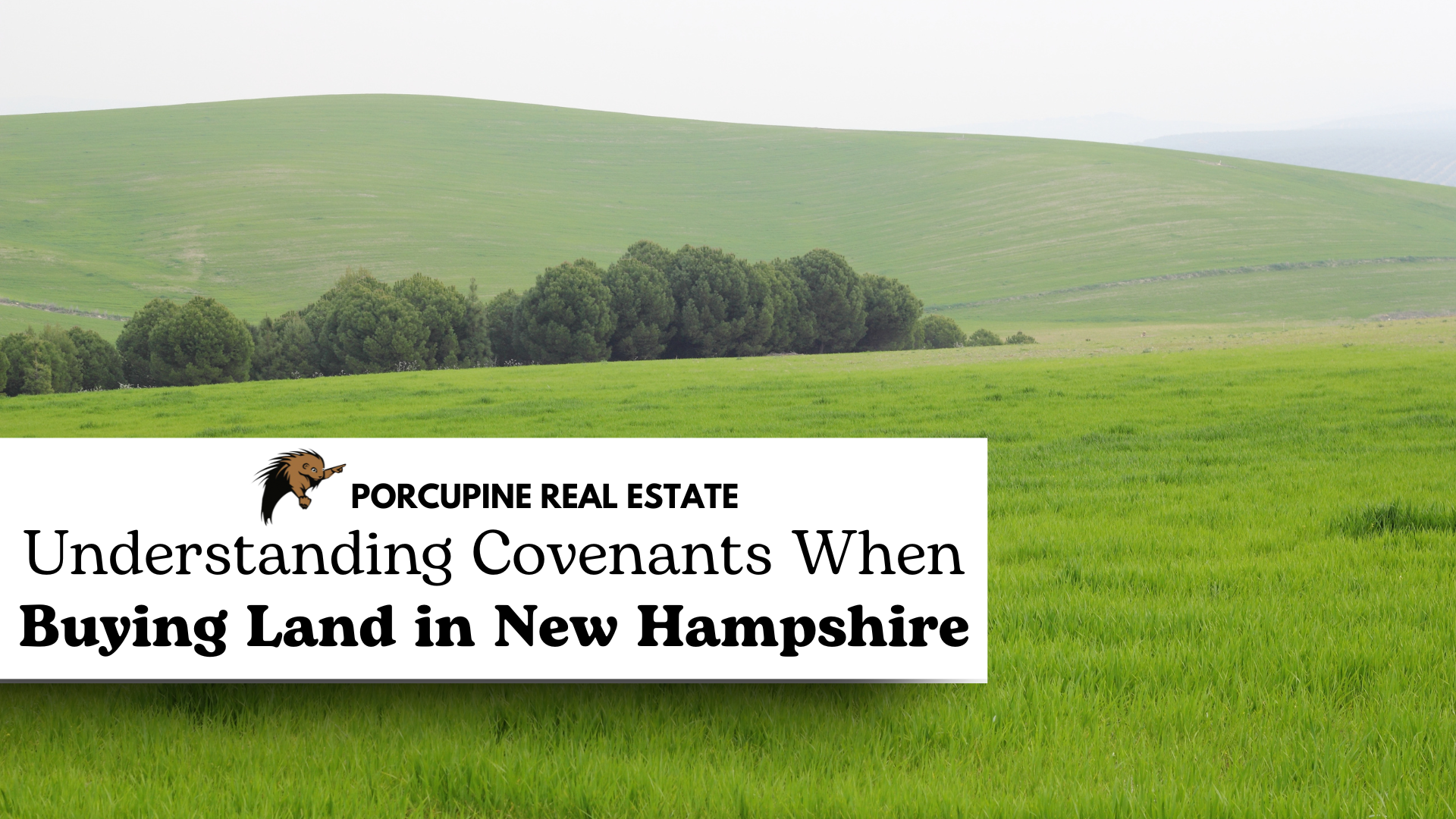Porcupine Real Estate Blog
Understanding Covenants When Buying Land in New Hampshire for Homesteading

When you're looking to purchase land in New Hampshire for homesteading, it's essential to be aware of potential covenants that could affect your plans. Covenants are legal restrictions placed on the property, and can limit everything from the types of buildings you can construct to whether you’re allowed to keep animals on the land. For homesteaders, especially those planning to raise livestock or keep pets, understanding these restrictions is crucial. A knowledgeable real estate agent can play a pivotal role in helping you navigate these details and ensure that the land you purchase aligns with your goals.
What are Covenants and Why Do They Matter?
Covenants are binding agreements tied to the property, often placed there by developers, homeowner associations, or previous owners. These restrictions can dictate various aspects of how the land is used, including the type of animals allowed, the size and style of buildings, fencing, and even landscaping choices. While covenants are more common in suburban developments, they can still be found in rural and agricultural areas—where homesteaders typically seek land.
For someone planning to homestead, especially if you intend to raise chickens, goats, pigs, or other animals, covenants that prevent livestock could be a major issue. They can restrict or entirely prohibit the keeping of certain animals, regardless of how much land you own. This is why it's critical to fully understand the terms before making a purchase.
The Role of a Real Estate Agent in Understanding Covenants
Real estate agents, particularly those familiar with rural properties, can be invaluable when it comes to interpreting property deeds and identifying any covenants. A good agent will know what to look for in the legal language of a deed and can alert you to potential red flags. For example, a deed might include terms like "no livestock" or "no animals over a certain weight," which could prevent you from raising the animals essential to your homesteading plans.
An experienced agent will guide you through the process of acquiring and reviewing the necessary legal documents, ensuring that nothing is overlooked. They can also help you understand the local zoning laws and how they might interact with any covenants on the property. Zoning laws are another layer of regulation that, alongside covenants, can restrict or allow certain uses of the land.
Using the Due Diligence Period to Your Advantage
The due diligence period is your opportunity to thoroughly investigate the property before finalizing your purchase. During this time, you can review all the legal documents, such as the deed and any associated covenants, to ensure that the property meets your needs. A real estate agent can assist you in interpreting the documents and will often recommend consulting a real estate attorney for an in-depth analysis, particularly if any covenants seem unclear or open to interpretation.
Your agent can also help coordinate inspections and verify zoning regulations, so you know exactly what you're getting into. This is the time to ask questions, gather information, and ensure that the property will allow you the freedom to use it as you wish. Whether it’s confirming that livestock is permitted or understanding how water rights might affect your farming plans, the due diligence period is your best chance to confirm that your homestead dream is feasible on this particular piece of land.
Making an Informed Decision
At the end of the day, the key to a successful land purchase for homesteading is being informed. Covenants can significantly impact your plans, but with the help of a knowledgeable real estate agent, you can navigate these potential pitfalls. By carefully reviewing all legal documents and using the due diligence period to its fullest, you’ll ensure that your land purchase aligns with your homesteading goals. Make sure to work with a real estate agent who understands the complexities of land sales and is committed to helping you achieve the freedom and lifestyle you’re seeking on your homestead.

